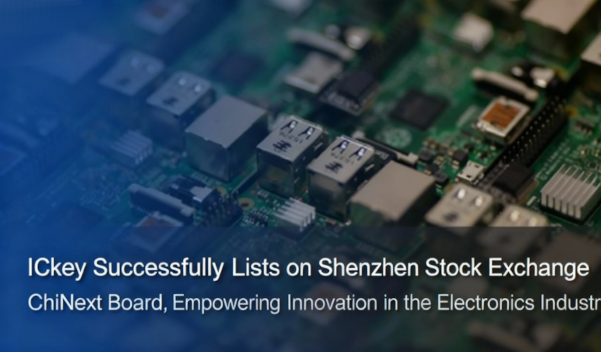Terminals
Terminals, often referred to as terminal devices, are essential components in computing and communication systems. They serve as the interface between users and the underlying systems or networks, allowing users to interact with various services and applications.
Definition:
A terminal is a hardware or software device that enables access to a computer system or network. It can be a physical device like a computer terminal with a keyboard and display or a software application that emulates such a device.
Functions:
1. Input/Output Interface: Terminals provide a means for users to input commands and receive output from the system.
2. Session Management: They manage user sessions, including authentication, authorization, and maintaining the state of the session.
3. Command Execution: Terminals interpret and execute commands entered by the user, which can control the operation of the system or access specific applications.
4. Data Display: They display data in a readable format, such as text or graphical interfaces.
Applications:
1. Remote Access: Terminals enable remote access to servers and networks, allowing users to work from different locations.
2. Command-Line Interface (CLI): They are used in CLIs for system administration and troubleshooting.
3. Embedded Systems: Terminals are integral to embedded systems in devices like ATMs, kiosks, and industrial control systems.
4. Virtualization: In virtual environments, terminals provide access to virtual machines and their operating systems.
Selection Criteria:
1. Compatibility: Ensure the terminal is compatible with the operating system and network protocols in use.
2. Security: Look for terminals with robust security features to protect against unauthorized access and data breaches.
3. Usability: Consider the ease of use, including the user interface and the ability to customize settings.
4. Performance: Evaluate the speed and reliability of the terminal, especially for tasks that require real-time interaction.
5. Scalability: Choose terminals that can handle increased loads and additional users as the system grows.
6. Support and Maintenance: Consider the availability of technical support and the ease of maintaining the terminal over time.
In summary, terminals are crucial for accessing and controlling various systems and networks. They come in various forms and must be chosen based on specific requirements, including compatibility, security, usability, performance, scalability, and support.
Please refer to the product rule book for details.
Definition:
A terminal is a hardware or software device that enables access to a computer system or network. It can be a physical device like a computer terminal with a keyboard and display or a software application that emulates such a device.
Functions:
1. Input/Output Interface: Terminals provide a means for users to input commands and receive output from the system.
2. Session Management: They manage user sessions, including authentication, authorization, and maintaining the state of the session.
3. Command Execution: Terminals interpret and execute commands entered by the user, which can control the operation of the system or access specific applications.
4. Data Display: They display data in a readable format, such as text or graphical interfaces.
Applications:
1. Remote Access: Terminals enable remote access to servers and networks, allowing users to work from different locations.
2. Command-Line Interface (CLI): They are used in CLIs for system administration and troubleshooting.
3. Embedded Systems: Terminals are integral to embedded systems in devices like ATMs, kiosks, and industrial control systems.
4. Virtualization: In virtual environments, terminals provide access to virtual machines and their operating systems.
Selection Criteria:
1. Compatibility: Ensure the terminal is compatible with the operating system and network protocols in use.
2. Security: Look for terminals with robust security features to protect against unauthorized access and data breaches.
3. Usability: Consider the ease of use, including the user interface and the ability to customize settings.
4. Performance: Evaluate the speed and reliability of the terminal, especially for tasks that require real-time interaction.
5. Scalability: Choose terminals that can handle increased loads and additional users as the system grows.
6. Support and Maintenance: Consider the availability of technical support and the ease of maintaining the terminal over time.
In summary, terminals are crucial for accessing and controlling various systems and networks. They come in various forms and must be chosen based on specific requirements, including compatibility, security, usability, performance, scalability, and support.
Please refer to the product rule book for details.
Categories
Featured Products
Datasheets
Article

What Is a Potential Transformer (PT)?
Table of Contents + 1. Basic Definition & Background 1.1. What Is a Potential Transformer? 1.2. PT vs Ordinary Transformer vs Instrument Transformer 1.3. Applications of Potential Transformers / What Are Potential Transformers Used For?2. Operation Principle 2.1. Working Principle of a PT / VT 2.2. Voltage Ratio & Turn Ratio Relationship 2.3....
Learn More >
ICkey Named Intel IoT Solution Aggregator, Marking Strategic Milestone in Partnership
ICkey, a leading distributor of electronic components and provider of digital supply chain solutions, has entered into a strategic partnership with global semiconductor giant Intel, becoming an official Intel IoT Solution Aggregator. To commemorate this milestone, the two companies held a signing ceremony under the theme “Smart Connectivity, Powering the Future.” During the ceremony, Bi Fenglei, Senior ...
Learn More >

ICkey Successfully Lists on Shenzhen Stock Exchange ChiNext Board, Empowering Innovation in the Electronics Industry
On September 30, 2025, ICkey (Shanghai) Internet & Technology Co., Ltd. (ICkey) announced its successful listing on the ChiNext Board of the Shenzhen Stock Exchange under the stock code 301563. As a leading vertical B2B supply chain platform in the electronic components sector, ICkey supports the R&D, production, and procurement needs of the electronics manufacturing industry - specifically targeting small and medium-b...
Learn More >






































